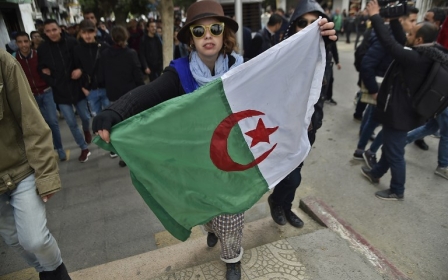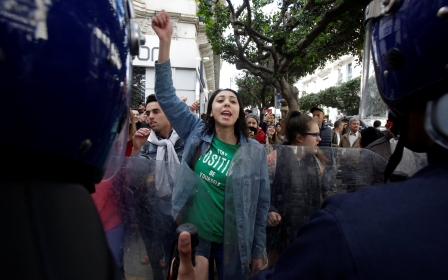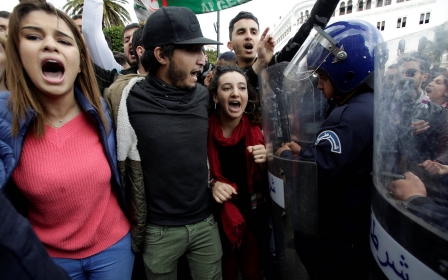Algeria's Bouteflika offers to leave after one year if re-elected president
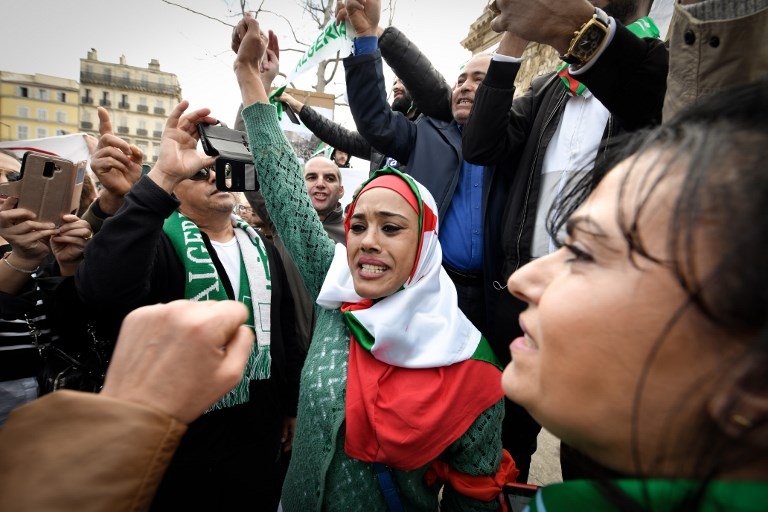
Algerian security forces used water cannons to break up the latest protests against ailing President Abdelaziz Bouteflika's bid for a fifth term in office, which was formally submitted on Sunday by his new campaign director, the official APS news agency said.
The submission on behalf of the ailing leader - who is in Switzerland for medical treatment - comes amid huge protests against his candidacy and with an offer to step down after a year if he is re-elected, his campaign manager said, as reported by Reuters.
The announcement read out by Abdelghani Zaalane on Bouteflika's behalf was aimed at appeasing those who had taken to the streets this weekend to protest against the 82-year-old's plans to remain in office.
About 100 students chanted "Bouteflika go away" near the main campus of the University of Algiers, in the capital's centre, cordoned off by police, AFP journalists said.
Hundreds more held rallies at campuses across Algiers, including at the Faculty of Law near the headquarters of the Constitutional Council where candidates must register for the presidential race, a student said.
New MEE newsletter: Jerusalem Dispatch
Sign up to get the latest insights and analysis on Israel-Palestine, alongside Turkey Unpacked and other MEE newsletters
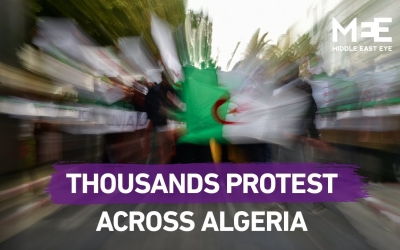
Rallies inside and outside campuses in the northeastern city of Annaba also drew hundreds of students who chanted anti-Bouteflika slogans, a local journalist said on condition of anonymity.
The TSA news website reported other protests in Algeria's second and third cities, Oran and Constantine, as well as in Bouira, Skida and Gelma in the east and Tiaret and Mostaganem in the southwest.
Bouteflika's announcement in February that he would seek another term despite his failing health has unleashed angry protests.
The president, who uses a wheelchair and has rarely been seen in public since a 2013 stroke, has remained silent on the demonstrations since they broke out last month.
'Routine medical checks'
A week ago Bouteflika flew to Switzerland for what his office described as "routine medical checks".
On Saturday, he sacked his campaign manager, Abdelmalek Sellal, a former prime minister who successfully oversaw Bouteflika's past three re-election bids, state media said.
Sellal was removed ahead of a deadline of midnight (2300 GMT) Sunday for contenders to register for the election and replaced by Transport Minister Abdelghani Zaalene.
There are no legal requirements for candidates to be physically present to submit their bid to the Constitutional Council. In 2014, Bouteflika registered in person.
On Sunday, police deployed massively around the council and the road leading to it was blocked.
Six candidates have already registered, including prominent retired general Ali Ghediri, who was the first to announce he would run for the presidency calling it a "major challenge" and promising a "change".
Businessman Rachid Nekkaz, who has cultivated a mass following among young people, said he would follow suit on Sunday afternoon.
An analyst who declined to be identified said Sellal's sacking could be a tactic to calm the growing protest movement.
An editorial on Sunday in El-Moudjahid newspaper, a mouthpiece of the government, said protesters would be "disappointed" in their campaign to force Bouteflika to pull out of the election race.
The sacking of Sellal came after more than a week of demonstrations by Algerians, including lawyers and students in several cities, including Algiers where protests have officially been banned since 2001.
The first major protest drew tens of thousands on 22 February, as demonstrators chanted "No fifth mandate".
The scale of the protests has surprised many in Algeria and represents the biggest challenge in years to the authorities.
On Friday, clashes erupted between police and protesters in Algiers as tens of thousands of people took to the streets.
Riot police used tear gas and batons to keep some protesters from marching on the Government Palace which houses the prime minister's office, AFP reporters said.
According to a police toll, 56 police officers and seven demonstrators were hurt and 45 alleged stone-throwers were arrested in Algiers.
Radio coverage blackout
Bouteflika has been in power for two decades following a civil war in the 1990s that officials say killed nearly 200,000 people.
Officials have warned that the protests risk dragging Algeria into instability, with the prime minister comparing the rallies to those that sparked Syria's war.
Protesters have been mobilised by calls on social media which have resonated with young Algerians, many of whom struggle for employment in a country where half the population is under 30.
Reporters at state radio have complained that their bosses have imposed a blackout on coverage of the protests, and last week journalists also took to the streets to protest against alleged censorship.
Middle East Eye delivers independent and unrivalled coverage and analysis of the Middle East, North Africa and beyond. To learn more about republishing this content and the associated fees, please fill out this form. More about MEE can be found here.


